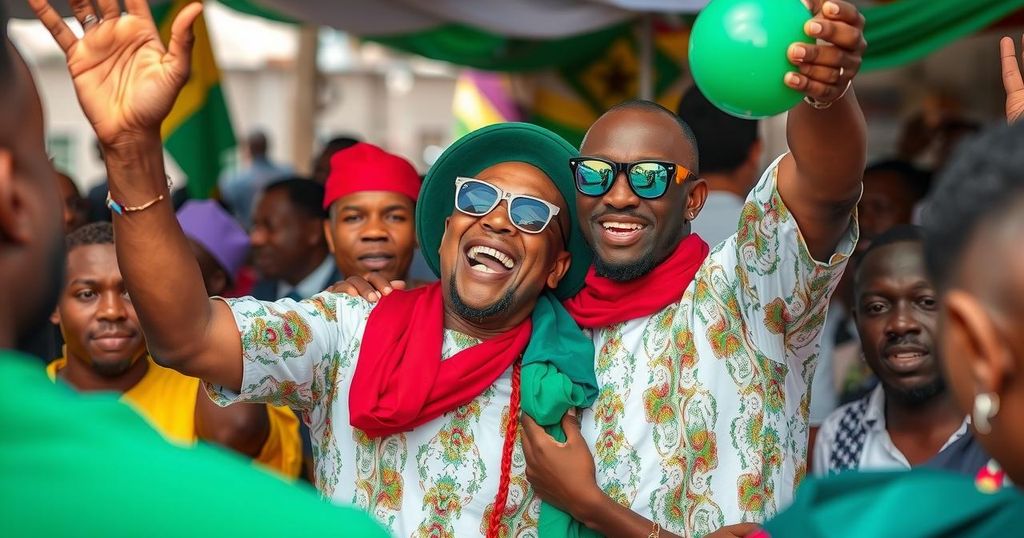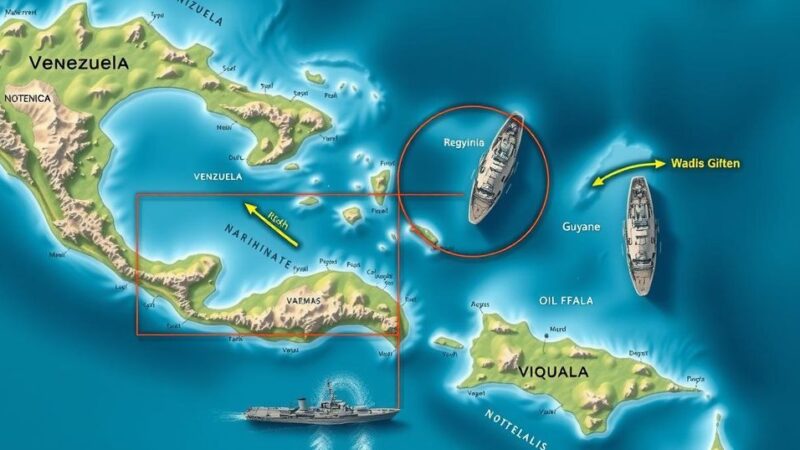Ghana’s opposition claims John Mahama has won the presidential election according to provisional results. The ruling NPP’s Mahamudu Bawumia faces criticism amid economic struggles. The election outcome will determine the country’s next president and parliament, with official results expected soon as Ghana confronts significant economic challenges.
On Sunday, Ghana’s opposition party, the National Democratic Congress (NDC), announced that provisional results from the recent presidential election indicated that their candidate, John Mahama, had secured victory. However, electoral officials stated that the official results were still being compiled. The electoral battle primarily unfolded between Mahama and the ruling New Patriotic Party (NPP) candidate, Vice President Mahamudu Bawumia, who faced criticism linked to widespread dissatisfaction regarding governmental policies and rising living costs.
The campaign was significantly influenced by an economic crisis in Ghana, characterized by a debt default, currency devaluation, and soaring inflation that prompted a $3 billion bailout from the International Monetary Fund. Voters were tasked with selecting a new president to succeed President Nana Akufo-Addo, who is completing two terms, as well as electing a new parliament.
Sammy Gyamfi, the spokesperson for the NDC, reported that their own assessments showed Mahama winning with 56.3 percent of the votes, compared to Bawumia’s 41.3 percent. Local media outlet ChannelOne TV echoed these findings, indicating that results from 42 of the 276 constituencies also suggested Mahama was leading. While counting continued, Deputy Commissioner Bossman Asare noted that comprehensive regional results had yet to be received at the national center and stated that official results would likely be announced by Tuesday.
Despite generally calm voting conditions, tragic incidents occurred, including two fatalities resulting from shootings in northern and central Ghana, as reported by the police. Since the reinstatement of multi-party politics in 1992, Ghana’s political landscape has been dominated by a two-party system, with the NPP and NDC alternating in power. The NPP aimed to maintain its hold with the campaign slogan “Break the 8,” indicating a desire for a third consecutive term while facing scrutiny over President Akufo-Addo’s economic strategies. Although inflation rates have diminished, challenges remain prominent in the electorate’s concerns, facilitating an opportunity for Mahama’s return after previously unsuccessful attempts at the presidency.
Ghana, a West African nation known for its rich resources such as gold and cacao, has historically enjoyed democratic stability with a two-party system comprising the NPP and NDC. The recent election emerged against a backdrop of economic turbulence, including significant inflation and debt crises, compelling the electorate to reconsider governmental efficacy. The election not only determined a new president but also a new parliamentary body, following President Akufo-Addo’s exit after his maximum two-term limit. John Mahama’s prior tenure from 2012 to 2017 adds another layer of complexity to his current challenge against the ruling party’s candidate, Mahamudu Bawumia.
In conclusion, the preliminary statements by the NDC regarding John Mahama’s success in the presidential election have sparked significant political discourse, despite ongoing official result tabulations. As Ghana navigates its economic challenges, the electorate’s decisions reflect a demand for change, as illustrated by the high stakes of this election. The official declaration of results by the electoral commission in the coming days will clarify the outcomes of this critical electoral event, shaping Ghana’s political future.
Original Source: www.france24.com






